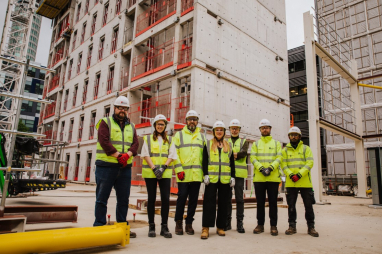- adidas mercury vintage cars price list Release Date , SBD , petite adidas inventory management system flowchart
- Jordan 10 Retro Light Smoke Grey310805-062 , 602 Release Date - Verse 555088 - Air Jordan 1 Origin Story Spider - IetpShops
- muzhskie krossovki nike jordan why not zero 2 seryj zheltyj - Jordan Reveal Photo Blue - these jordan 1 mid gs boast a flash of colour on the heel
- nike air jordan 1 factory outlet
- nike junior av hooded top black white , Nike Air Yeezy Slippers
- Air Jordan 3 Rust Pink CK9246 600
- air jordan 1 retro high og university blue 555088 134
- Air Jordan 1 Satin Black Toe CD0461 016 2019 Release Date 4
- best nike basketball shoes
- air jordan xxxv cq4227 004
- Home
- News and analysis
- Info hubs
- Events
- Video
- Case Studies
- About us
- Magazine
- Advertising
Produced for the industry by the Association for Consultancy and Engineering
News
Construction favours international arbitration for dispute resolution
International arbitration is now conclusively the most preferred form of dispute resolution for cross-border disputes in the construction industry.

In a new study published today by Queen Mary University of London (QMUL), in partnership with global law firm White & Case, 90% of the respondents surveyed prefer international arbitration to resolve cross-border disputes, a finding which has increased significantly from QMUL’s first international arbitration survey in 2006, where the figure was 73%.
"When the typical value of construction related claims average £100 million but can be well over £1 billion, it has never been more important for those in the industry to choose the right method of dispute resolution" - Michael Turrini, White & Case
Construction companies and project sponsors now favour international arbitration thanks to the greater enforceability of arbitral awards, the inherent flexibility of the process, and the ability to avoid specific legal systems yet choose arbitrators, among other benefits.
Michael Turrini, a White & Case construction partner based in the Middle East said: “As this research reveals, it is the ability to harness specific construction industry expertise that makes international arbitration particularly appealing to the sector. Construction is a particularly technical area of law, constantly evolving and often involving complex design / engineering defects and delay and disruption claims. As such, it sits at the apex of some very complex disciplines.
“Companies which choose litigation therefore run the risk of having a court appointed judge to hear their case and who may not have a construction background.
“However in international arbitration, where parties can select arbitrators with the specialist technical knowledge and industry expertise, there is a likelihood of achieving a more considered result which better reflects the specifics of the issue. When the typical value of construction related claims average £100 million but can be well over £1 billion, it has never been more important for those in the industry to choose the right method of dispute resolution.”
Preferred venues
London and Paris continue to be the preferred venues for international arbitration, ranked by respondents as the two most used seats over the past five years (45% and 37%, respectively) and the two most preferred seats (47% and 38%).
However, reflecting the growing importance of Asia for investment in large infrastructure and construction projects, the study shows that Hong Kong and Singapore are gaining momentum, coming in third and fourth. Singapore is perceived to be the most improved seat for international arbitration over the past five years, with Hong Kong following closely behind.
Turrini continued: “The growth of emerging markets in Asia has created a flow of capital between west and east – often to fund mega-infrastructure and construction projects. But these types of projects inevitably create issues over access to resources, finance and funding. In addition, because these projects are so large, they are extremely costly and often result in disputes.
“As such, we are seeing more Asian parties involved in large construction disputes and, as this research shows, Singapore and Hong Kong are becoming increasingly important as centres for international arbitration.”
Preferred institutions
When respondents were asked to choose their three preferred institutions, just over two-thirds (68%) included the International Chamber of Commerce (ICC) in their answer, and more than one-third (37%) included the London Court of International Arbitration (LCIA), mirroring the results from the 2010 International Arbitration Survey.
The Hong Kong International Arbitration Centre (HKIAC) and the Singapore International Arbitration Centre (SIAC) came in third and fourth (28% and 21%, respectively). The survey revealed that institutions are primarily chosen due to their high level of administration, neutrality/internationalism and ability to administer arbitrations worldwide.





